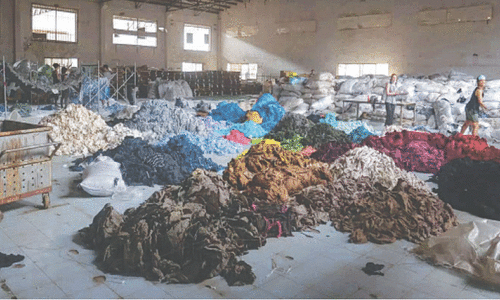ISLAMABAD: Policymakers in Asia and the Pacific are struggling to collect and analyse the data they need to effectively respond to climate change, hampering efforts in a region considered the world’s most vulnerable to the effects of a warming planet, the Asian Development Bank said on Thursday in a survey.
Some national statistical offices in the region say they do not have enough staff working on climate data, and others do not have a unit dedicated to it, according to a new ADB survey.
The Asia-Pacific region is enduring severe and complex impacts of climate change. These include heat waves with temperatures above 45°C, catastrophic floods, destructive typhoons, prolonged droughts, and ravaging bushfires.
The findings of the ADB’s survey, which covered 29 national statistical offices in Asia and the Pacific, were released as part of Key Indicators for Asia and the Pacific 2024.
The report explains how data and statistics can play a crucial role in combating climate change.
The region is responsible for over 50 per cent of heat-trapping GHG emissions globally, the report says.
This is expected to increase, with 80 per cent of anticipated growth in coal demand coming from Asia and the Pacific.
The climate change is disproportionately affecting the poorest people. Poorer economies have approximately 59 per cent greater exposure risk score and 25 per cent less coping capacity score compared to other economies.
The report notes that national statistical offices are challenged not only by limited capacity and insufficient access to climate data, but also by a lack of uniform definitions and methodologies.
Asked about the reasons for these shortcomings, the survey respondents cited insufficient technical staffing, limited financial resources, methodological and technical difficulties, a lack of coordination with other stakeholders, and climate change data not being seen as a priority.
Most respondents also said their access to geographically granular data is “fair” at best for many types of data, including on climate change drivers such as fossil fuel use and total greenhouse gas emissions. Key data on impacts on ecosystems, infrastructure, specific geographic areas, and water security are lacking.
Asia and the Pacific region accounts for more than half of all global greenhouse gas emissions and is hit harder by disasters and other climate risks than any other region. Without high-quality data and the ability to analyse it, policymakers in the region cannot design effective, targeted measures to tackle the causes and effects of climate change - and evaluate their effectiveness.
“The Asia and the Pacific region is at the forefront of the climate battle,” said ADB Chief Economist Albert Park.
“The deadly heat waves and catastrophic floods we have seen in recent months show us what is at stake.
“We need high-quality data and robust statistical capacity to avoid policy blind spots and make sure our strategies for tackling the climate crisis are well-informed.
“This means we need to invest in our statistical systems, our people, and our institutions. The cost of not doing so will be far higher than the cost of these investments,” he said.
Published in Dawn, August 23rd, 2024















































